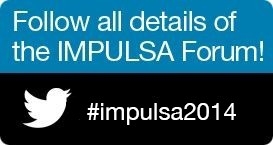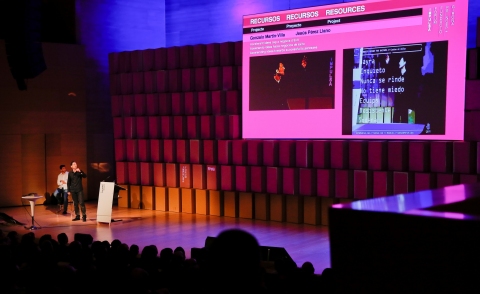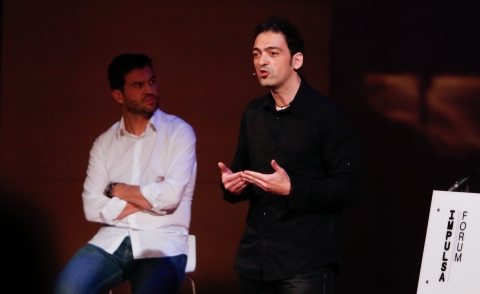Secondly, we are involved in open innovation. The digital world is increasingly fast and it is hard to keep up with what is happening. Telefónica has some highly trained departments yet we are also open to exploring what is happening outside.
Lastly, Wayra encourages job and business creation, which generates growth in the countries in which we operate. We maintain that there is no crisis, but rather passionate people; lots of people working, innovating and doing disruptive things.
What do we do? We detect talent in the world of technology and provide support: funding of up to 40,000 euros, a physical site, technological backup, user experience, business management, etc. What differentiates us most is that we provide the Telefónica platform and the option that the products that leave Wayra can be developed at Telefónica, which represents an opportunity for start-ups.
We started operating in Colombia, where we issued a very successful call for projects. We extended this throughout Latin America and Europe. We are now present in 12 countries, run 14 academies, have received 21,000 project submissions and invested in 246 start-ups. We are considered the world’s largest technology start-up accelerator.
We have been very flexible. We make Telefónica grow as a company while making others grow. We don’t get involved in the projects and do not have exclusivity on the products and services derived from them, which helps to build an innovative and collaborative ecosystem.
Our work involves great risk and the failure rate is very high. It does work however. We have a low company mortality rate and the vast majority are in commercial phase.
TedCas
TedCas is a start-up launched at Wayra’s headquarters in Madrid. TedCas is like the minority report of doctors. We develop natural user interfaces for doctors and other health personnel. This allows them to access records without touching anything. Natural user interfaces are intended for easier communication without involving computer keyboard and mice.
In a medical environment such as a clean room, if the surgeon wants more information about the patient, he or she has to leave, consult it, commit it to memory and return to the room. TedCas solves this problem. It reduces staff, streamlines work, and most importantly prevents infection. In Spain, 300,000 people become sick each year from infections picked up in hospitals and 6,000 people die from them.
Our proposal meets a need. We have listened to the opinions of our end users, who are doctors. We have identified the need to change the way in which doctors and medical software interact.
We can all come up with a good idea or project. Entrepreneurs by nature are restless, innovative, wish to solve problems, do not give up, rise to challenges, seize opportunities to improve and continue to learn, are not afraid, or rather control fear, and are resilient… We have managed to bring together a great team who feel the same as we do, with people who trust us and invest in our project: Wayra provides the “wind” but we set the sails with which to reach the port of our choice.








